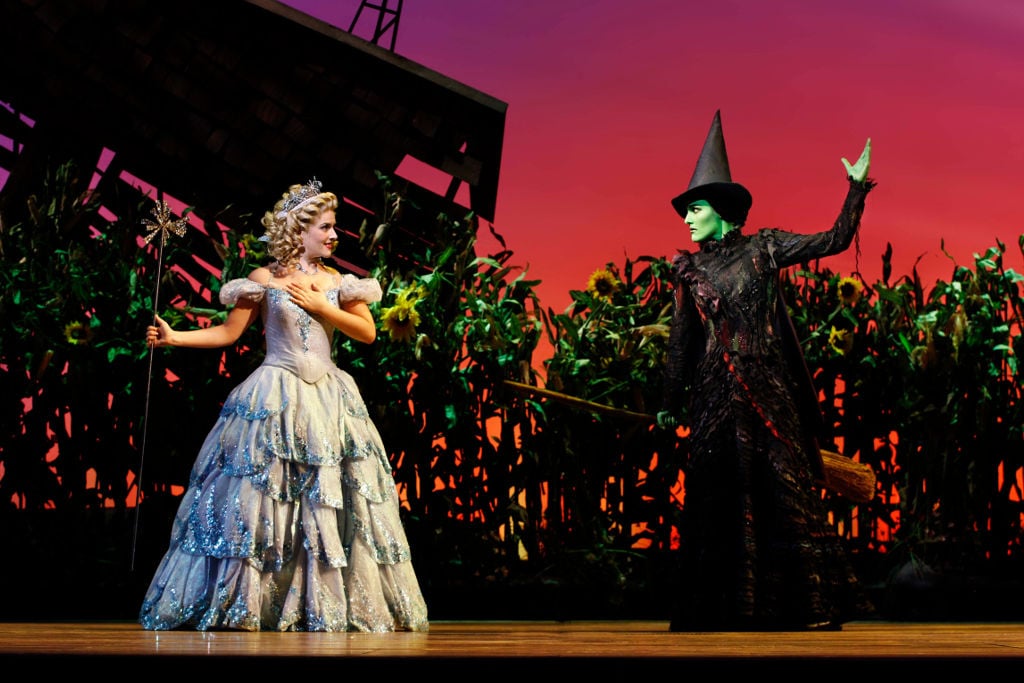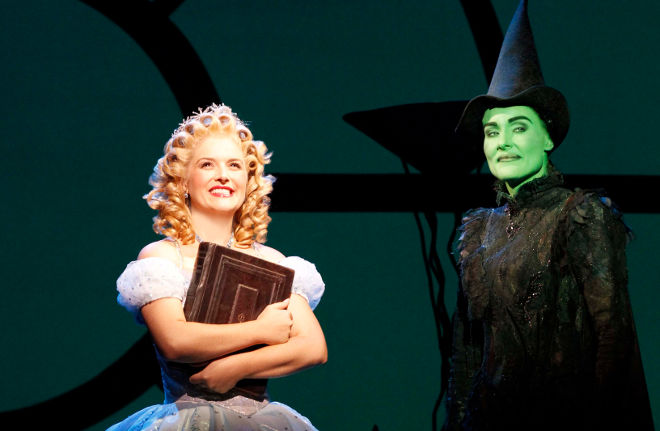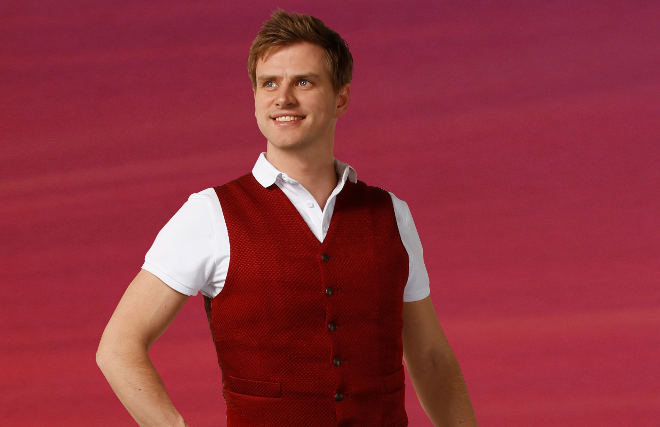The Musical ‘Wicked’ Is As Much About Feminism As It Is About Witches
In a genre that tends to sideline women as competitors or love interests, 'Wicked' is a tail of friendship, integrity, and professional success.

Haven’t we heard it all when it comes to “having it all”? Anne Marie Slaughter wrote a lengthy op-ed in The Atlantic about it; Sheryl Sandberg urges working women to “lean in” in her book of the same name; and many a successful woman is familiar with the sentiment that “you can have it all… just not at the same time.”
And with Wicked‘s tenth anniversary being celebrated with a string of shows in Sydney, before it ships off to Perth in May next year, we can apply the question to two of the most famous and polarising witches in literature: The Wicked Witch of the West, Elphaba (played by Jemma Rix); and G(a)linda the Good (played by Lucy Durack).
Wicked offers an alternative to the marriage and babies and home owning (oh my!) that are so often part and parcel of “having it all”. The witches break convention with most many other Broadway musicals, choosing political activism over love; but first and foremost, Wicked is a tale of friendship between two unlikely comrades.
–
A Wicked Friendship, And A Tale Of Two Careers
When it was first performed at New York’s Gershwin Theatre in 2003, Wicked was received as a “girl power” moment, based on a novel by Gregory Maguire which had been released in 1995 — the peak of the ’90s third wave of feminism (and the hey-day of the Spice Girls). Professor of Theatre at Princeton University, Stacy Wolf, even wrote a book about Wicked as a feminist text, borrowing from the show for its title, Changed for Good.
At its heart, Wicked is a tale of friendship, and how deep, platonic bonds can change a person ‘For Good’ — a pretty radical theme for an industry whose most successful musicals have historically focused either minimally on women (see: Les Miserables, which is currently showing in Melbourne, or newcomer Book of Mormon), or positioned them as the dependent love interest (see: Phantom of the Opera, Grease, Rock of Ages).
Wicked flipped the script on its predecessors; many of its numbers were essentially odes to friendship, and hateship. For example, the early ‘What Is This Feeling?’ is sung in the style of a love song — but is actually about the characters’ hatred for each other.
In addition to friendship, career and politics play a huge part in advancing the story of what “happened before Dorothy dropped in”. Prior to attending Shiz University to selflessly look after her disabled sister, Elphaba hadn’t considered a career in magic. Glinda uses her Type A personality, shrewdness and “popularity” to angle her way into the competitive sorcery seminar, whereas Elphaba excels based on natural talent alone. Once they become “good best friends”, Glinda’s buckles her ambition into the back seat in order to help Elphaba “meet the Wizard”, and put her magical gifts to use in the Emerald City.
It’s not easy to admit that someone you love is better at something you love than you are — especially someone with whom you were so at odds at first. Whereas Elphaba is presented as the moral compass of the story, Glinda is the one who gives up what she wants — academic success, love and, let’s face it, probably martyrdom — so that her friend might have a chance at them.
In Wicked, friendship is the most important thing.
–
Yes, There’s A Love Interest
Wicked is primarily concerned with friendship and effecting change – but what would a Broadway musical be without a love interest?
Enter the Winkie prince, Fiyero. While Fiyero’s rich, pretty boy demeanor makes him a perfect match for the seemingly “shallow”, ditzy Glinda at the beginning of the musical, by Wicked’s end he physically transforms to leave Oz hand in hand with Elphaba.
Make no mistake, though; Fiyero is positioned as a complement to the successes each witch has already achieved, not the ultimate prize at the cost of their friendship. Instead of fighting over their hero — as so many other female friends on screen and stage tend to do — each witch is willing to give him up to spare their friendship.
Glinda melancholically muses on her engagement to Fiyero that “It is, I admit; The tiniest bit/unlike I anticipated.” Prior to this, Elphaba had sacrificed her feelings for the prince in pursuit of enlightening the “citizens of Oz” to the Wizard’s wicked ways in the Act I closing number, ‘Defying Gravity’: “Too long I’ve been afraid of/Losing love I guess I’ve lost/Well if that’s love/It comes at much too high a cost.”
Where many musicals position romantic relationships as the be all and end all of companionship, Elphaba and Glinda’s alliance is most important: they complement each other’s attributes and shortcomings, while supporting the other’s magical and political goals. These witches truly are partners, in a musical that offers integrity, engagement in public life and strong female friendship as worthy alternatives to love, marriage and baby carriage.
–
Wicked is playing at the Capitol Theatre in Sydney until the end of the year, before heading to the Lyric Theatre in Brisbane from February 12, and the Crown Theatre in Perth from May 6.
–
Scarlett Harris is a freelance writer and blogger at The Scarlett Woman. You can follow her on Twitter at @ScarlettEHarris
Photos by Jeff Busby.

